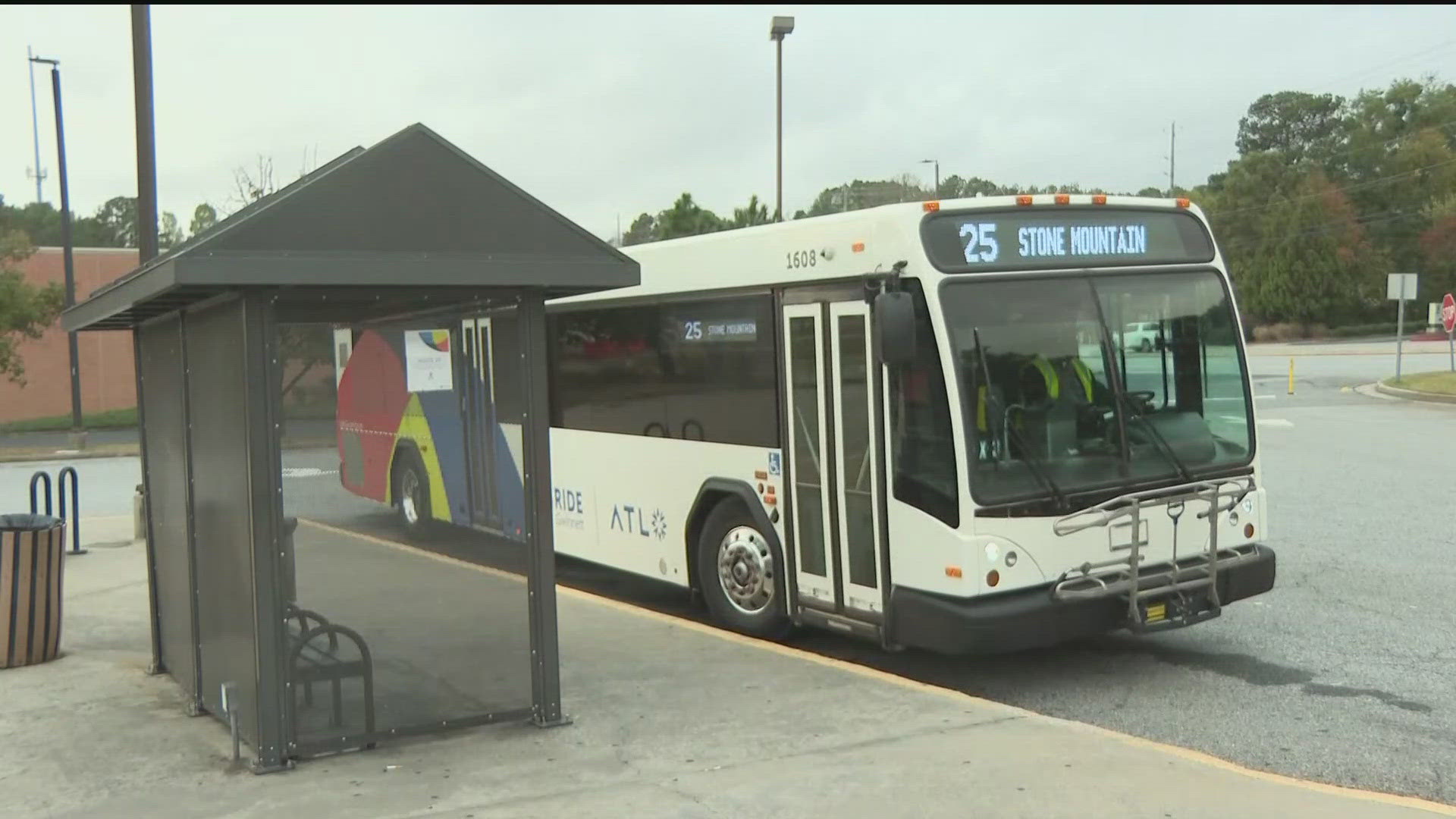DULUTH, Ga. — Gwinnett County's efforts to expand local transit failed again on Election Day 2024.
A referendum on the ballot was an extensive transportation project for more local transit options. It included a one-percent sales tax for work over 30 years. The project was set to include micro transit expansion, new transit transfer facilities, ride routes to the airport, and rapid transit routes. Voters rejected it by a seven-percent margin.
Gwinnett County Transit SPLOST Referendum
Tremal Wynn, 22, of Duluth, said he catches the bus from time to time. And he's noticed issues.
"Try to fix some things up. Literally, I get on buses. Sometimes I can't pay because the scanners' broke or you've got to push the door to get out. The doors are broke and the seats," Wynn said.
Wynn sat at the bus stop waiting.
"And it'll be 40 minutes from this bus to the next bus," Wynn said, "And, on Google Maps, it says it's scheduled—every bus is scheduled 30 minutes."
Wynn said he voted for the first time Tuesday. And the wording of the proposal was confusing to him.
"I would absolutely be OK with paying to help fix the transit system if that's what the money is actually going to," Wynn said.
Philana Nowack said she's happy the proposal didn't pass.
"I'm not on board with paying a higher school tax, higher property taxes to the county, or another additional transit tax," Nowack said.
Nowack is part of a group that fights to stop tax raises. Though she doesn't take the bus, she said she's not seeing enough passengers.
"The study showed that the plan was too much for Gwinnett--that our population growth isn't going to be as much as they (are) projecting," Nowack said.
County data shows Ride Gwinnett is used one million times a year.
Gwinnett County Chairwoman Nicole Love Hendrickson released this statement:
Since beginning my term in 2020, I have expressed the need for transit and mobility solutions in Gwinnett. Realizing previous referendum efforts, we went back to the drawing board to design a Transit Plan that addressed the mobility needs of residents, businesses, and stakeholders in Gwinnett. This plan was unanimously adopted by the Gwinnett County Board of Commissioners, and we moved to place the decision in the hands of Gwinnett County voters. Unfortunately, voters turned down the vote to fund expanded and enhanced transit in this way.
“Our county is growing, but our current transit system is limited. With more than a quarter million people projected to move to Gwinnett by 2050, we need solutions to ease congestion. Transit is also a crucial component of many plans and projects, including the 2045 Unified Plan, Rowen, Gwinnett Place Mall, and more. The county needs transit to remain innovative and preserve the high quality of life our residents have come to expect. Most importantly, we need to continue providing an essential service – ensuring residents who rely on public transportation have affordable and reliable transit options.
“While the Transit Plan will continue to serve as a framework for the future of transit in our county, we will seek and leverage potential funding from state, federal, and local sources as we continue to strive toward our goal of mobility for all.
Nowack said taxpayers now shouldn't be deciding the taxes for future generations.
"It's a long-time tax for us to absorb," Nowack said. "And it will never go away,"
Nowack said she's not against transit. She just feels like the county's current resources can be used to address route limitations.
"I think they need to study what they have and make better use of what's already there," Nowack said.
Currently, the transit system is funded by property taxes.
11Alive is committed to helping you vote confidently by understanding the 2024 election issues that impact you. Our goal is to educate and inform our audience about the election process. We plan to do that by verifying facts, providing context, and explaining the system. Get more election resources here at /vote.

